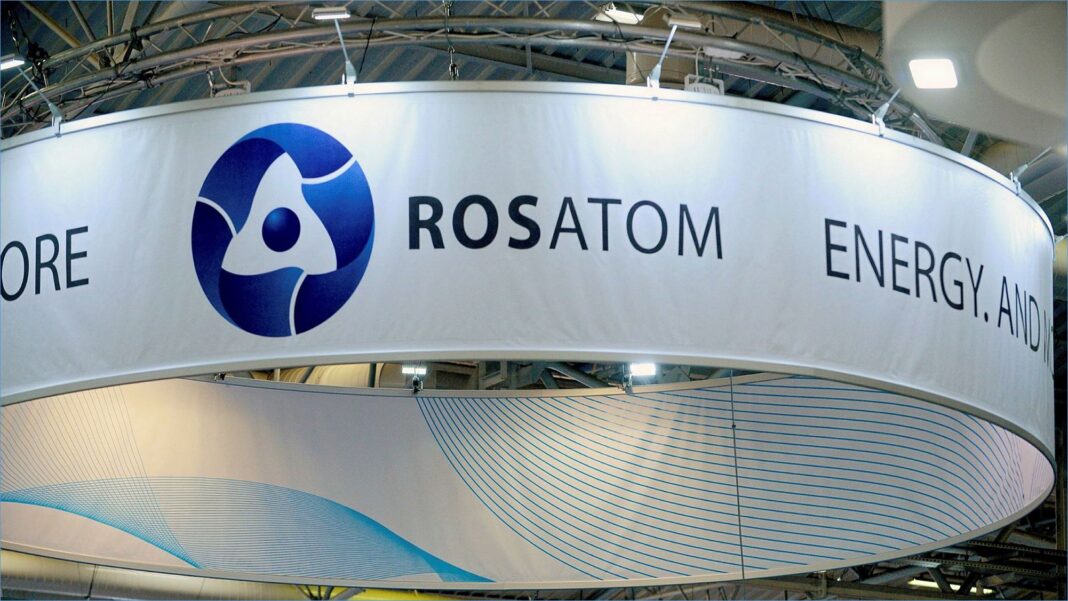In a significant development for Africa’s energy landscape, a delegation from Russia’s state nuclear corporation, Rosatom, has arrived in Burkina Faso to explore the potential construction of the country’s first nuclear power plant (NPP). The visit, which began earlier this week, is part of a broader push by Russia to expand its influence and nuclear technology footprint across Africa, a continent where energy demand is rapidly growing.
Yacouba Zabre Gouba, Burkina Faso’s Minister of Energy, Mines, and Open Pits, expressed optimism about the visit, saying, “We place big hopes on this visit. We are ready to discuss all the technical details, identify tasks we face to implement it. We hope construction of a nuclear power plant will make it possible for us to solve many economic problems.” This move is aligned with Burkina Faso’s efforts to diversify its energy sources and address long-standing power supply issues that have hindered economic development.
Russia’s Nuclear Diplomacy in Africa
This collaboration comes as part of Russia’s nuclear diplomacy, leveraging its advanced nuclear technology and expertise in uranium refinement to strengthen ties with African nations. Burkina Faso and Russia had previously signed a roadmap in March 2024 for cooperation in the peaceful use of nuclear energy. The potential construction of an NPP marks a significant step forward in Burkina Faso’s broader energy strategy.
Africa’s energy crisis has prompted several nations to turn to nuclear energy as a potential solution to power shortages. Rosatom’s growing influence on the continent is underscored by its competitive financing offers and long-term contracts, which often include not only the construction of the NPPs but also the provision of 60-year operating, maintenance, and fuel-supply agreements. Such agreements have made Rosatom’s proposals highly attractive to many African governments.
Burkina Faso is not the only African nation considering nuclear power. Rosatom is involved in several other projects across the continent, including in Egypt, South Africa, Uganda, and Kenya. Egypt, for instance, is working with Rosatom on the $30 billion Dabaa NPP, which will feature four units with a combined capacity of 4.8 GW, designed to meet the country’s growing power demand.
Rosatom’s Expanding Footprint in Africa
The announcement of Rosatom’s potential nuclear project in Burkina Faso is part of a broader wave of interest in nuclear power from African countries seeking to meet the increasing demand for energy. In addition to Egypt, which is already home to Africa’s only operational NPP, Rosatom is building a new unit at the Dabaa NPP, with plans for a future regional energy hub. South Africa, meanwhile, has been discussing the inclusion of small modular reactors (SMRs) and floating nuclear power plants (FNPPs) to help address its own energy crisis, with Eskom, the national utility, struggling to keep up with aging infrastructure and power outages.
Uganda has also joined the ranks of African nations turning to nuclear energy. In 2023, Ugandan President Yoweri Museveni announced that Russia and South Korea had been selected to build two NPPs in Uganda, which would generate over 15 GW of power to alleviate the country’s energy shortage. With such projects underway, nuclear power is fast becoming a central component of Africa’s energy future.
The Growing Role of Nuclear Energy in Africa’s Development
As Rosatom continues to expand its nuclear presence in Africa, the implications for energy security and socio-economic development across the continent are profound. Nuclear energy provides a stable, low-carbon alternative to fossil fuels, which are not only increasingly expensive but also contribute to environmental degradation. For many African countries, nuclear power represents a sustainable solution to the growing demand for electricity, which is crucial for industrial development, job creation, and poverty alleviation.
However, the implementation of nuclear power projects also presents significant challenges. The technical complexity of building and maintaining nuclear facilities, along with the financial and regulatory hurdles, means that collaboration between host nations and international partners like Rosatom will be critical.
Looking Ahead
Burkina Faso’s potential entry into the nuclear energy sector is an exciting development that highlights the growing importance of nuclear power in Africa’s energy mix. As the country works towards the establishment of a nuclear power plant, it will likely serve as a model for other nations looking to harness nuclear energy to drive economic growth and enhance energy security.
The cooperation between Russia and Burkina Faso, along with other African nations, is set to reshape the continent’s energy landscape, offering a promising solution to the energy challenges that have long held back economic progress. With an increasing number of countries exploring nuclear energy, Africa’s nuclear future looks brighter than ever.








